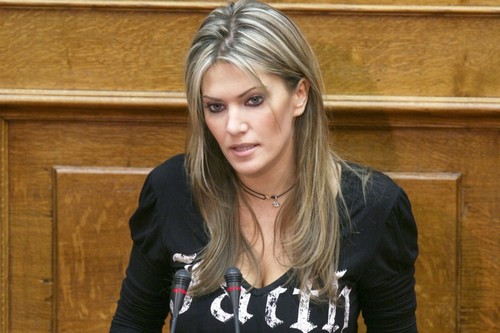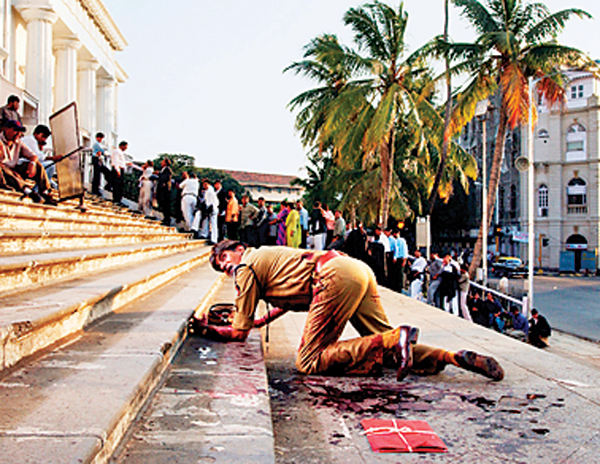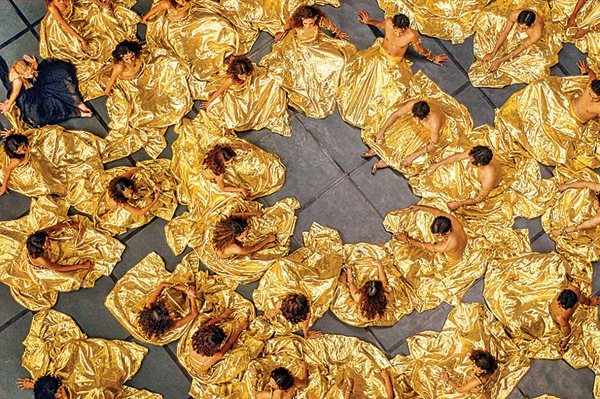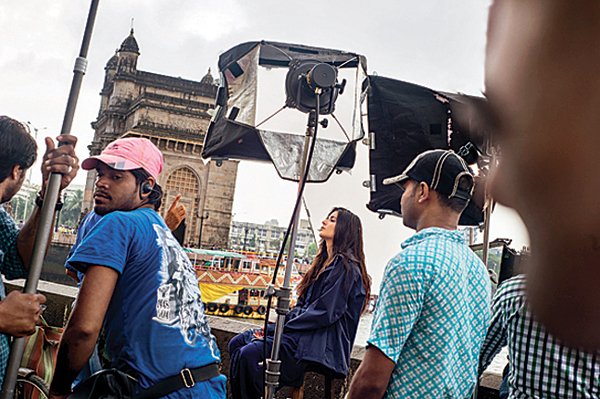Were
I a fundamentalist militant in Western Europe, or, indeed, in a number
of other places, I would not be overjoyed at the success of the Nov. 13
suicide attacks in Paris.
Worry would be the more appropriate response.
The intelligence and security services of many European and other
countries have already swung into action. Their activities will be of
greater consequence than anything that happened in the original attacks —
because they want to solve the mystery of exactly what happened in
Paris, and because key suspects are already proving elusive, the dangers
of a crackdown are growing by the hour.
Conversely, in my role as an ordinary citizen — even though people
like me were the targets of the Paris attacks — I am reassured. The
reasons why become evident as you consider just how a massive search
like this is conducted.
In the first place, while it may be true that the police started with
no information about the perpetrators, that condition changed swiftly.
One perpetrator, identified by a finger blown off in the detonation of
his suicide vest, immediately yielded the information that the man’s
brother was also an Islamist. There’s a suspect already. The discovery
of a rental car leads to another identification. Immediate family,
relatives and friends of individuals who have been identified become
instant persons of interest in investigations like this.
In this age of aggregation, metadata and data mining, the recognition
of connections or links between and among individuals has received
quite a great deal of attention. That is precisely what Washington’s
National Security Agency was up to with its tracing of second- and
third-level associations of persons whose phone numbers were being
monitored.
In the Paris investigation, making associations like this will guide
one segment of the inquiry. This kind of tracking will become even more
important as authorities develop real leads. For example, the militants
killed in Paris on Nov. 13 may have carried phones, were wearing
clothes, were carrying weapons. All those things can be traced and some,
like the phones, can yield more new associations.
Take the weapons used in the attacks, for example. The Islamist group
known as Islamic State has no logistics network in Western Europe. The
attackers had to procure their weapons somewhere, which leads to the
question of where there is a black market in AK-47 assault rifles that
would be accessible to them. The Brussels suburb of Molenbeek is one
such place.
The weapons used in the attack on the Brussels-to-Paris train in
August that was foiled by three young Americans; in a shootout with
Belgian police earlier this year, and in the May 2014 attack on the
Jewish Museum of Belgium in Brussels — all came from this suburb. The
attackers had lived in this area, too — and the two brothers linked to
the Paris attacks have been traced to Molenbeek already.
Belgian police have deployed in force into Molenbeek. Here comes the
next thing that is reassuring — or not, depending on which side of the
law you inhabit. The security services are not without knowledge.
In Belgium, there was a group called Sharia4Belgium that advocated
sharia law and was ranked as one of the main recruiters of fighters to
go to Syria. Belgium itself has gained the distinction of being the
highest per-capita supplier of recruits for jihad in the Middle East.
Early in 2015, a Belgian judge designated Sharia4Belgium a terrorist
organization, and 45 people associated with the group were found guilty
of terror-related offenses. The evidence from that trial, from the
investigations of all the defendants and from the train and shoot-out
incidents — all give the security services names of individuals to
question in the Paris attacks.
Similarly, the French police — and their special security service,
the Direction de la Surveillance du Territoire (DST) — have “Q” files
that indicate persons of interest who may have been investigated in the
past. There are reports already that at least one of the Paris attackers
had a “Q” file and had been followed for a time. In Britain, Scotland
Yard’s Special Branch compiles the same sort of files.
A certain number of French Muslims in Seine-Saint-Denis, or British
Muslims in Birmingham or Tower Hamlets, can expect to find themselves
pulled in for questioning — regardless of whether there is specific
evidence linking them to events in Paris. In France alone, 168 raids
were reportedly carried out on Monday. More than a hundred persons are
being held in their homes.
These are reflexive elements of an investigation before there is
specific evidence. They are about suspect lists and generic doubts.
Interviews with such a broad swath of individuals, data mining and
following the threads from detritus found at the attack scenes will, in
due course, furnish investigators with even more concrete leads.
Coordination among services in different nations will be imperative.
Speed is important, of course. As with the January shootings at the
headquarters of Charlie Hebdo, big fish such as suspected ringleader
Abdelhamid Abaaoud may have flown the coop already. But what gives
Islamic State the capability is the network, and here thoroughness takes
precedence over velocity. As security services expand their
investigations, they will become more precise and able to hone in on
persons or elements that have a more direct connection, if not to the
Paris attacks themselves, then to other jihadi activities.
This is why I think that the Paris attacks will damage Islamist
purposes throughout Western Europe more than the destruction wrought by
the Paris attackers on Nov. 13. In the six months after the 9/11
attacks, the Central Intelligence Agency tells us, it and its allies
swept 2,500 individuals with terrorist connections off the streets in
many countries.
Expect something similar to happen here.
- See more at:
http://opinion.bdnews24.com/2015/11/18/clues-isis-left-behind-in-paris-attacks-will-cost-it-dearly/#sthash.qtt48MyA.dpuf
Were
I a fundamentalist militant in Western Europe, or, indeed, in a number
of other places, I would not be overjoyed at the success of the Nov. 13
suicide attacks in Paris.
Worry would be the more appropriate response.
The intelligence and security services of many European and other
countries have already swung into action. Their activities will be of
greater consequence than anything that happened in the original attacks —
because they want to solve the mystery of exactly what happened in
Paris, and because key suspects are already proving elusive, the dangers
of a crackdown are growing by the hour.
Conversely, in my role as an ordinary citizen — even though people
like me were the targets of the Paris attacks — I am reassured. The
reasons why become evident as you consider just how a massive search
like this is conducted.
In the first place, while it may be true that the police started with
no information about the perpetrators, that condition changed swiftly.
One perpetrator, identified by a finger blown off in the detonation of
his suicide vest, immediately yielded the information that the man’s
brother was also an Islamist. There’s a suspect already. The discovery
of a rental car leads to another identification. Immediate family,
relatives and friends of individuals who have been identified become
instant persons of interest in investigations like this.
In this age of aggregation, metadata and data mining, the recognition
of connections or links between and among individuals has received
quite a great deal of attention. That is precisely what Washington’s
National Security Agency was up to with its tracing of second- and
third-level associations of persons whose phone numbers were being
monitored.
In the Paris investigation, making associations like this will guide
one segment of the inquiry. This kind of tracking will become even more
important as authorities develop real leads. For example, the militants
killed in Paris on Nov. 13 may have carried phones, were wearing
clothes, were carrying weapons. All those things can be traced and some,
like the phones, can yield more new associations.
Take the weapons used in the attacks, for example. The Islamist group
known as Islamic State has no logistics network in Western Europe. The
attackers had to procure their weapons somewhere, which leads to the
question of where there is a black market in AK-47 assault rifles that
would be accessible to them. The Brussels suburb of Molenbeek is one
such place.
The weapons used in the attack on the Brussels-to-Paris train in
August that was foiled by three young Americans; in a shootout with
Belgian police earlier this year, and in the May 2014 attack on the
Jewish Museum of Belgium in Brussels — all came from this suburb. The
attackers had lived in this area, too — and the two brothers linked to
the Paris attacks have been traced to Molenbeek already.
Belgian police have deployed in force into Molenbeek. Here comes the
next thing that is reassuring — or not, depending on which side of the
law you inhabit. The security services are not without knowledge.
In Belgium, there was a group called Sharia4Belgium that advocated
sharia law and was ranked as one of the main recruiters of fighters to
go to Syria. Belgium itself has gained the distinction of being the
highest per-capita supplier of recruits for jihad in the Middle East.
Early in 2015, a Belgian judge designated Sharia4Belgium a terrorist
organization, and 45 people associated with the group were found guilty
of terror-related offenses. The evidence from that trial, from the
investigations of all the defendants and from the train and shoot-out
incidents — all give the security services names of individuals to
question in the Paris attacks.
Similarly, the French police — and their special security service,
the Direction de la Surveillance du Territoire (DST) — have “Q” files
that indicate persons of interest who may have been investigated in the
past. There are reports already that at least one of the Paris attackers
had a “Q” file and had been followed for a time. In Britain, Scotland
Yard’s Special Branch compiles the same sort of files.
A certain number of French Muslims in Seine-Saint-Denis, or British
Muslims in Birmingham or Tower Hamlets, can expect to find themselves
pulled in for questioning — regardless of whether there is specific
evidence linking them to events in Paris. In France alone, 168 raids
were reportedly carried out on Monday. More than a hundred persons are
being held in their homes.
These are reflexive elements of an investigation before there is
specific evidence. They are about suspect lists and generic doubts.
Interviews with such a broad swath of individuals, data mining and
following the threads from detritus found at the attack scenes will, in
due course, furnish investigators with even more concrete leads.
Coordination among services in different nations will be imperative.
Speed is important, of course. As with the January shootings at the
headquarters of Charlie Hebdo, big fish such as suspected ringleader
Abdelhamid Abaaoud may have flown the coop already. But what gives
Islamic State the capability is the network, and here thoroughness takes
precedence over velocity. As security services expand their
investigations, they will become more precise and able to hone in on
persons or elements that have a more direct connection, if not to the
Paris attacks themselves, then to other jihadi activities.
This is why I think that the Paris attacks will damage Islamist
purposes throughout Western Europe more than the destruction wrought by
the Paris attackers on Nov. 13. In the six months after the 9/11
attacks, the Central Intelligence Agency tells us, it and its allies
swept 2,500 individuals with terrorist connections off the streets in
many countries.
Expect something similar to happen here.
- See more at:
http://opinion.bdnews24.com/2015/11/18/clues-isis-left-behind-in-paris-attacks-will-cost-it-dearly/#sthash.qtt48MyA.dpuf
Were
I a fundamentalist militant in Western Europe, or, indeed, in a number
of other places, I would not be overjoyed at the success of the Nov. 13
suicide attacks in Paris.
Worry would be the more appropriate response.
The intelligence and security services of many European and other
countries have already swung into action. Their activities will be of
greater consequence than anything that happened in the original attacks —
because they want to solve the mystery of exactly what happened in
Paris, and because key suspects are already proving elusive, the dangers
of a crackdown are growing by the hour.
Conversely, in my role as an ordinary citizen — even though people
like me were the targets of the Paris attacks — I am reassured. The
reasons why become evident as you consider just how a massive search
like this is conducted.
In the first place, while it may be true that the police started with
no information about the perpetrators, that condition changed swiftly.
One perpetrator, identified by a finger blown off in the detonation of
his suicide vest, immediately yielded the information that the man’s
brother was also an Islamist. There’s a suspect already. The discovery
of a rental car leads to another identification. Immediate family,
relatives and friends of individuals who have been identified become
instant persons of interest in investigations like this.
In this age of aggregation, metadata and data mining, the recognition
of connections or links between and among individuals has received
quite a great deal of attention. That is precisely what Washington’s
National Security Agency was up to with its tracing of second- and
third-level associations of persons whose phone numbers were being
monitored.
In the Paris investigation, making associations like this will guide
one segment of the inquiry. This kind of tracking will become even more
important as authorities develop real leads. For example, the militants
killed in Paris on Nov. 13 may have carried phones, were wearing
clothes, were carrying weapons. All those things can be traced and some,
like the phones, can yield more new associations.
Take the weapons used in the attacks, for example. The Islamist group
known as Islamic State has no logistics network in Western Europe. The
attackers had to procure their weapons somewhere, which leads to the
question of where there is a black market in AK-47 assault rifles that
would be accessible to them. The Brussels suburb of Molenbeek is one
such place.
The weapons used in the attack on the Brussels-to-Paris train in
August that was foiled by three young Americans; in a shootout with
Belgian police earlier this year, and in the May 2014 attack on the
Jewish Museum of Belgium in Brussels — all came from this suburb. The
attackers had lived in this area, too — and the two brothers linked to
the Paris attacks have been traced to Molenbeek already.
Belgian police have deployed in force into Molenbeek. Here comes the
next thing that is reassuring — or not, depending on which side of the
law you inhabit. The security services are not without knowledge.
In Belgium, there was a group called Sharia4Belgium that advocated
sharia law and was ranked as one of the main recruiters of fighters to
go to Syria. Belgium itself has gained the distinction of being the
highest per-capita supplier of recruits for jihad in the Middle East.
Early in 2015, a Belgian judge designated Sharia4Belgium a terrorist
organization, and 45 people associated with the group were found guilty
of terror-related offenses. The evidence from that trial, from the
investigations of all the defendants and from the train and shoot-out
incidents — all give the security services names of individuals to
question in the Paris attacks.
Similarly, the French police — and their special security service,
the Direction de la Surveillance du Territoire (DST) — have “Q” files
that indicate persons of interest who may have been investigated in the
past. There are reports already that at least one of the Paris attackers
had a “Q” file and had been followed for a time. In Britain, Scotland
Yard’s Special Branch compiles the same sort of files.
A certain number of French Muslims in Seine-Saint-Denis, or British
Muslims in Birmingham or Tower Hamlets, can expect to find themselves
pulled in for questioning — regardless of whether there is specific
evidence linking them to events in Paris. In France alone, 168 raids
were reportedly carried out on Monday. More than a hundred persons are
being held in their homes.
These are reflexive elements of an investigation before there is
specific evidence. They are about suspect lists and generic doubts.
Interviews with such a broad swath of individuals, data mining and
following the threads from detritus found at the attack scenes will, in
due course, furnish investigators with even more concrete leads.
Coordination among services in different nations will be imperative.
Speed is important, of course. As with the January shootings at the
headquarters of Charlie Hebdo, big fish such as suspected ringleader
Abdelhamid Abaaoud may have flown the coop already. But what gives
Islamic State the capability is the network, and here thoroughness takes
precedence over velocity. As security services expand their
investigations, they will become more precise and able to hone in on
persons or elements that have a more direct connection, if not to the
Paris attacks themselves, then to other jihadi activities.
This is why I think that the Paris attacks will damage Islamist
purposes throughout Western Europe more than the destruction wrought by
the Paris attackers on Nov. 13. In the six months after the 9/11
attacks, the Central Intelligence Agency tells us, it and its allies
swept 2,500 individuals with terrorist connections off the streets in
many countries.
Expect something similar to happen here.
- See more at:
http://opinion.bdnews24.com/2015/11/18/clues-isis-left-behind-in-paris-attacks-will-cost-it-dearly/#sthash.qtt48MyA.dpuf
Were
I a fundamentalist militant in Western Europe, or, indeed, in a number
of other places, I would not be overjoyed at the success of the Nov. 13
suicide attacks in Paris.
Worry would be the more appropriate response.
The intelligence and security services of many European and other
countries have already swung into action. Their activities will be of
greater consequence than anything that happened in the original attacks —
because they want to solve the mystery of exactly what happened in
Paris, and because key suspects are already proving elusive, the dangers
of a crackdown are growing by the hour.
Conversely, in my role as an ordinary citizen — even though people
like me were the targets of the Paris attacks — I am reassured. The
reasons why become evident as you consider just how a massive search
like this is conducted.
In the first place, while it may be true that the police started with
no information about the perpetrators, that condition changed swiftly.
One perpetrator, identified by a finger blown off in the detonation of
his suicide vest, immediately yielded the information that the man’s
brother was also an Islamist. There’s a suspect already. The discovery
of a rental car leads to another identification. Immediate family,
relatives and friends of individuals who have been identified become
instant persons of interest in investigations like this.
In this age of aggregation, metadata and data mining, the recognition
of connections or links between and among individuals has received
quite a great deal of attention. That is precisely what Washington’s
National Security Agency was up to with its tracing of second- and
third-level associations of persons whose phone numbers were being
monitored.
In the Paris investigation, making associations like this will guide
one segment of the inquiry. This kind of tracking will become even more
important as authorities develop real leads. For example, the militants
killed in Paris on Nov. 13 may have carried phones, were wearing
clothes, were carrying weapons. All those things can be traced and some,
like the phones, can yield more new associations.
Take the weapons used in the attacks, for example. The Islamist group
known as Islamic State has no logistics network in Western Europe. The
attackers had to procure their weapons somewhere, which leads to the
question of where there is a black market in AK-47 assault rifles that
would be accessible to them. The Brussels suburb of Molenbeek is one
such place.
The weapons used in the attack on the Brussels-to-Paris train in
August that was foiled by three young Americans; in a shootout with
Belgian police earlier this year, and in the May 2014 attack on the
Jewish Museum of Belgium in Brussels — all came from this suburb. The
attackers had lived in this area, too — and the two brothers linked to
the Paris attacks have been traced to Molenbeek already.
Belgian police have deployed in force into Molenbeek. Here comes the
next thing that is reassuring — or not, depending on which side of the
law you inhabit. The security services are not without knowledge.
In Belgium, there was a group called Sharia4Belgium that advocated
sharia law and was ranked as one of the main recruiters of fighters to
go to Syria. Belgium itself has gained the distinction of being the
highest per-capita supplier of recruits for jihad in the Middle East.
Early in 2015, a Belgian judge designated Sharia4Belgium a terrorist
organization, and 45 people associated with the group were found guilty
of terror-related offenses. The evidence from that trial, from the
investigations of all the defendants and from the train and shoot-out
incidents — all give the security services names of individuals to
question in the Paris attacks.
Similarly, the French police — and their special security service,
the Direction de la Surveillance du Territoire (DST) — have “Q” files
that indicate persons of interest who may have been investigated in the
past. There are reports already that at least one of the Paris attackers
had a “Q” file and had been followed for a time. In Britain, Scotland
Yard’s Special Branch compiles the same sort of files.
A certain number of French Muslims in Seine-Saint-Denis, or British
Muslims in Birmingham or Tower Hamlets, can expect to find themselves
pulled in for questioning — regardless of whether there is specific
evidence linking them to events in Paris. In France alone, 168 raids
were reportedly carried out on Monday. More than a hundred persons are
being held in their homes.
These are reflexive elements of an investigation before there is
specific evidence. They are about suspect lists and generic doubts.
Interviews with such a broad swath of individuals, data mining and
following the threads from detritus found at the attack scenes will, in
due course, furnish investigators with even more concrete leads.
Coordination among services in different nations will be imperative.
Speed is important, of course. As with the January shootings at the
headquarters of Charlie Hebdo, big fish such as suspected ringleader
Abdelhamid Abaaoud may have flown the coop already. But what gives
Islamic State the capability is the network, and here thoroughness takes
precedence over velocity. As security services expand their
investigations, they will become more precise and able to hone in on
persons or elements that have a more direct connection, if not to the
Paris attacks themselves, then to other jihadi activities.
This is why I think that the Paris attacks will damage Islamist
purposes throughout Western Europe more than the destruction wrought by
the Paris attackers on Nov. 13. In the six months after the 9/11
attacks, the Central Intelligence Agency tells us, it and its allies
swept 2,500 individuals with terrorist connections off the streets in
many countries.
Expect something similar to happen here.
- See more at:
http://opinion.bdnews24.com/2015/11/18/clues-isis-left-behind-in-paris-attacks-will-cost-it-dearly/#sthash.qtt48MyA.dpuf





















































